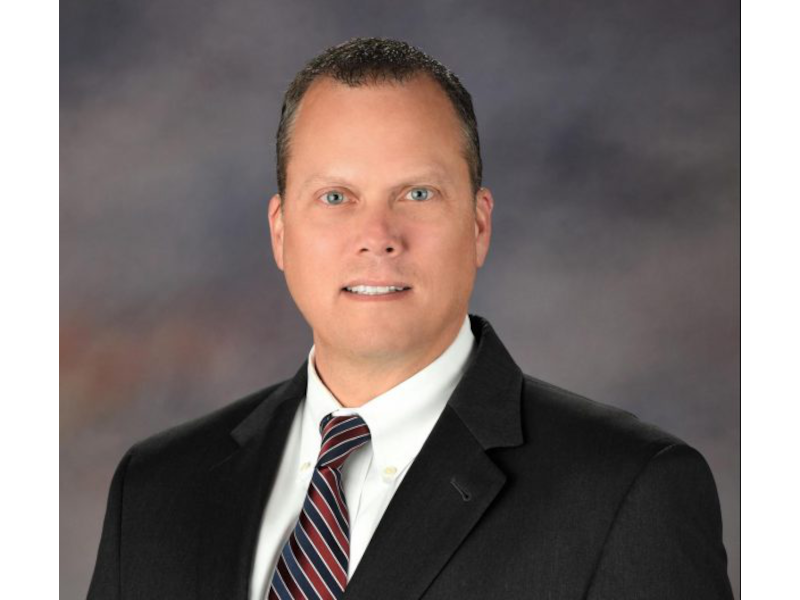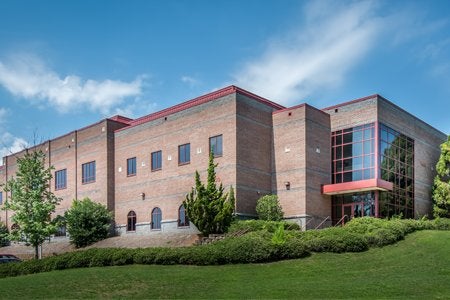Partnerships among the educational institutions in the area can help grow the technical and vocational programs as Augusta’s medical and cyber footprint continue to expand.
Students in Columbia County have the options of nearly 20 pathways of skill/trade, according to Columbia County Superintendent Stephen Flynt. Some of those include automotive and welding, HVAC, health sciences and cyber.
MORE: Cyber Workforce Program Comes to Augusta
“We’ve got a lot of the curriculum here, but we need to continue to work with industry professionals to expand real-world learning experiences,” Flynt said. “We started an internship program that 40 kids were involved with this past summer, and we have about 100 students involved in our work-based learning program.”
According to the program website, work-based learning is a “structured program that connects school-based occupational instruction and related work-site experience. It’s designed to provide employers with qualified employees, and it exposes students to a wide range of general and specific workplace knowledge and competencies.”
[adrotate banner=”54″]
Flynt said the program has grown over the last few years, but they hope to continue to develop it going forward.
Georgia Power also partnered with the Columbia County Chamber of Commerce and provided a grant for soft skills learning, or skills that are generalized and desirable in a wide range of professions.
Students can begin taking technical classes in ninth grade, Flynt said.

“Many of them they can get involved with early on,” Flynt said. “This year, we hired additional counselors that are somewhat dedicated to guiding a four-year plan for students about when to take what classes.”
In terms of partnering with local technical colleges to streamline a student’s transition from high school to college, Flynt said dual enrollment is one of the most popular options.
“If someone is preparing for a particular career out of high school, we offer dual enrollment where students can take those classes at their future institution,” Flynt said.
The superintendent said that even in the midst of the pandemic, looking ahead is still key. Columbia County is starting a strategic planning process that will gather feedback from committee members and the public via a survey.
“We want input on what people want to get out of their schools in the area,” he said. “Any those will be open to students too. We want to hear what everyone has to say.”
Flynt said he’s had a successful relationship with Jermaine Whirl, president of Augusta Technical College.
“I met with Dr. (Jermaine) Whirl a few months ago. I was familiar with him from when we both working in Gwinnett,” Flynt said.” We’ve got a really good person leading Augusta Tech.”
[adrotate banner=”19″]
Whirl said they are constantly working with area counties to ensure that they can marry the technical education at the college level with the high schools. He, too, mentioned dual enrollment as a key cog in those efforts.
“If you are a high school student and want to get into one of the technical area, like welding or cyber, you can start to work toward your certification even while you’re in high school, and you can enter directly into the workforce,” Whirl said. “Some people might not want to go to college and this can help them circumvent that and move directly into the labor force after high school.”

Whirl made an effort to mention the HOPE Career Grant, a program offered to HOPE-scholarship qualified students that are typically a year or less and are tuition-free, according to Whirl.
This program is designed for students who enroll in select majors specifically aligned with industries in which there are more jobs available in Georgia than there are skilled workers to fill them. These industries have been identified as strategically important to the state’s economic growth, according to the grant website.
Some of the ones Whirl mentioned were aviation, welding, carpentry, nursing and cyber. Click here for a full list of those approved programs of study.
Whirl said of the college’s 138+ programs, everything the college offers is based on the needs of the region.
MORE: Augusta University and Augusta Tech Announce New Learning Pathway
“We are held accountable for offering programs that get our students jobs,” Whirl said. “And for every program of study we have, we have a business advisory board to help guide our graduates toward jobs in their field. Because of that connectivity, we should be the first choice in that regard.”
Tyler Strong is the Business Editor for The Augusta Press. Reach him at tyler@theaugustapress.com.
[adrotate banner=”51″]












